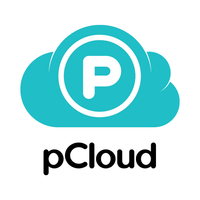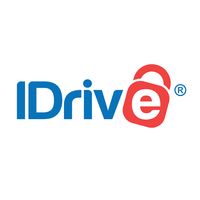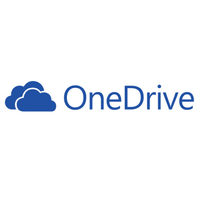Secure cloud storage: How secure is it, and which providers are most secure?
Secure cloud storage requires more than encryption alone

Cloud storage is more critical than ever for businesses. Improvements in backend technology have made an optimal cloud storage solution much better value than an on-premises one. It is more affordable, more scalable and flexible, and, perhaps most importantly, more secure.
But not all cloud storage platforms are alike, and some are a lot less secure than the providers would like to admit, whether that’s due to a lack of encryption or inadequate redundancy options.
As a result, choosing the wrong cloud storage platform could lead to major headaches for your team down the track. But opting for a secure cloud storage provider will ensure your business reaps the benefits for years to come.
This article explores exactly what factors create a secure cloud storage platform, and what to look for when choosing one. We then review some of the most secure providers, giving you a head start in your search for the best cloud storage.
Secure cloud storage: What makes it secure?
A secure cloud storage provider must adopt a holistic approach to security, while simultaneously protecting the user’s data and account. To achieve this, the best cloud storage providers design and implement comprehensive security frameworks that cover each of the topics discussed below.
Encryption

Encryption is the bread and butter of secure cloud storage. Without it, your data simply isn’t safe. Any interception of data during upload/download, or a breach of your provider’s servers, could see all your data exposed. This would be a disaster for most businesses, leaving them with angry clients and potential legal liabilities. The costs of lost data can quickly balloon, even for small- and medium-sized companies.
Therefore, the first thing you should look for in a secure cloud storage platform is advanced encryption protocols. Encryption should occur both in transit (when files are sent to and from the server) and at rest (when files are in storage). We think the minimum encryption level for a secure cloud storage provider is TLS/SSL 128-bit encryption in transit, and AES 256-bit encryption at rest.
Sign up to get the BEST of Tom’s Guide direct to your inbox.
Upgrade your life with a daily dose of the biggest tech news, lifestyle hacks and our curated analysis. Be the first to know about cutting-edge gadgets and the hottest deals.
Leaders in secure cloud storage also provide end-to-end encryption, something you should consider if your business manages highly sensitive files or data. End-to-end encryption means only the user has the authentication key required to decrypt the data. No one, including your provider, can decode your information.
Account security
It’s also crucial to protect user accounts and keep unauthorized persons out. If an employee’s account is compromised, not even the best encryption can protect your data. Competent account security comes down to two essential features: two-factor authentication (2FA) and minimum password standards.
Minimum password standards enable administrators to enforce password complexity requirements. This might be a requirement to include special characters (such as #, $, or %), or a minimum password length. Requiring employees to create strong passwords is one of the easiest things a business can do to improve account security, and protect their organization’s data.
2FA is also crucial in preventing account hacks and lost or stolen data. 2FA requires employees to provide two methods of identification when logging into their accounts. The first method is almost always a password, while the second is typically a numerical code sent to the user’s mobile phone or generated in an authenticator app.
With strong passwords and 2FA enabled, there’s almost zero chance your employee’s accounts will be hacked. If you want secure cloud storage, these two features are non-negotiable.
Administrator controls

The best cloud storage platforms provide administrators with a powerful suite of controls that enable them to track how the system is used. They also help IT staff detect potential security issues before they become major headaches.
One of the most critical administrator features is auditing. Many platforms enable you to quickly generate audits that show you how employees are using the system, such as what files are being accessed and by whom. This allows you to see if people are accessing files they shouldn’t be able to, and then to make changes to permissions as necessary.
Auditing also makes it clear which files may require additional security measures, such as password protection.
Data redundancy and geo-replication
For large businesses and major enterprises, data redundancy and geo-replication are absolutely essential. Even for small- and medium-sized organizations, these features can make a massive difference in the event of a significant data-loss incident.
Put simply, data redundancy and geo-replication mean your provider stores multiple copies of your file in different locations. These may be in similar locations or entirely different parts of the world.
So even if there is a major issue at one data center (such as fire, theft or power loss), you will still be able to access your files. If you need a secure cloud storage provider that guarantees your data will always be safe and available, these are two features you should constantly be on the lookout for.
The most secure cloud storage providers
<a href="https://www.pcloud.com/?subtag=hawk-custom-tracking" data-link-merchant="pcloud.com"" target="_blank" rel="nofollow">pCloud
pCloud is a leader in secure cloud storage thanks to pCloud Crypto, an add-on that provides unlimited end-to-end encryption for your files. As we’ve already mentioned, end-to-end encryption is the most advanced level of encryption available. Business customers get pCloud Crypto included in their plans, while individuals can purchase lifetime access for $125.
However, pCloud also excels in protecting account security, with advanced 2FA settings and minimum password standard controls. Business customers also gain access to an impressive suite of administrator controls, many of which improve your ability to control how data is accessed and used. Read our <a href="https://www.tomsguide.com/reviews/pcloud-cloud-storage-review" data-link-merchant="tomsguide.com"" data-link-merchant="pcloud.com"">pCloud review for more information.
<a href="https://www.idrive.com/?subtag=hawk-custom-tracking" data-link-merchant="idrive.com"" target="_blank" rel="nofollow">IDrive
IDrive enables business customers to create their own encryption keys, which is somewhat unique among cloud storage providers. This is essentially end-to-end encryption, enabling business leaders to take total control of their data security.
Admittedly, it requires a bit of technical expertise to set up and manage your own encryption keys, but for organizations that prioritize data security, the rewards justify the investment. With personal encryption keys, you can be absolutely sure your files will only be seen by you and those you provide access to. Our <a href="https://www.tomsguide.com/us/idrive-personal,review-5400.html" data-link-merchant="tomsguide.com"" data-link-merchant="idrive.com"">IDrive review explores the platform in more detail.
<a href="https://click.linksynergy.com/deeplink?id=kXQk6%2AivFEQ&mid=24542&u1=hawk-custom-tracking&murl=https%3A%2F%2Fwww.microsoft.com%2Fmicrosoft-365%2Fonedrive%2Fonline-cloud-storage" data-link-merchant="microsoft.com"" target="_blank" rel="nofollow">Microsoft OneDrive
OneDrive is one of our top picks for the most secure cloud storage platform because it performs strongly in all security categories. However, despite its strong performance across the board, it doesn’t excel in any one category.
Encryption is strong and easily meets our minimum expectations. The Vault is a sub-folder that provides end-to-end encryption for as many files as you want, although unfortunately files must be added one by one.
Microsoft also maintains an extensive network of data centers worldwide, thanks largely to <a href="https://click.linksynergy.com/deeplink?id=kXQk6%2AivFEQ&mid=24542&u1=hawk-custom-tracking&murl=https%3A%2F%2Fazure.microsoft.com%2F" data-link-merchant="microsoft.com"" data-link-merchant="microsoft.com"" target="_blank" rel="nofollow">Microsoft Azure, an enterprise-level cloud storage framework. This vast network of data centers has enabled Microsoft to implement comprehensive redundancy policies and geo-replicate user data across many locations.
Microsoft can also claim to have some of the most physically secure data centers globally, with policies that go well beyond 24-hour security and motion sensors. Think multiple levels of biometric authorization and constant auditing of digital security processes. Give our <a href="https://www.tomsguide.com/reviews/microsoft-onedrive-cloud-storage-review" data-link-merchant="tomsguide.com"" data-link-merchant="microsoft.com"" data-link-merchant="microsoft.com"">Microsoft OneDrive review a read to see what we thought in more detail.
Conclusion
We’re confident that you’re now ready to tell apart the secure cloud storage platforms from the not-so-safe. The most important features to look for include strong encryption protocols, 2FA and minimum password standards, administrator controls, and geo-replication of data. If you're still unsure, read our feature outlining why cloud storage is secure, which also offers tips on using it securely.
Choosing a provider with most or all of the aforementioned features will ensure your business can operate more effectively and reap time and cost savings, all while avoiding costly data loss incidents. Learn more about the security of various providers in our in-depth analysis of cloud storage providers, and find out more about secure cloud storage and what you should look for in a service.
Darcy is a freelance copywriter, and a candidate for the dual master's program between the Paris Institute of Political Studies (Sciences Po) in France and Peking University in Beijing, China. His academic and professional areas of interest include human rights and development, sustainable agriculture and agroecology, Pacific Islands diplomacy, and Sino-Australian relations.




